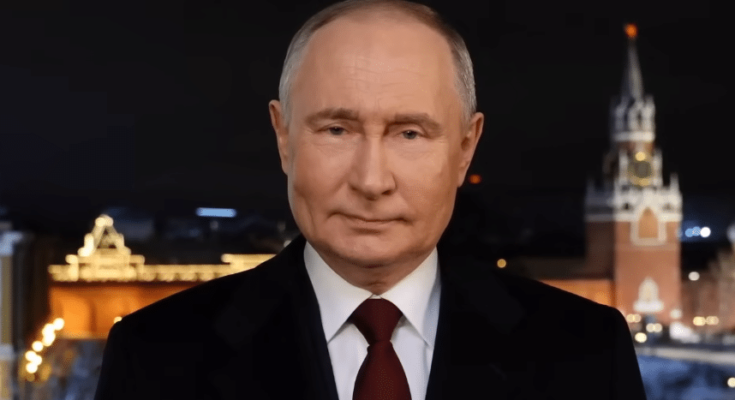
Russian President Vladimir Putin made a list of countries “showing destructive behavior contrary to Russian spiritual and moral values,” with Greece and Cyprus among them.
Prime Minister Mikhail Mishustin approved the publication of Kremlin’s list of the 47 countries. The list does not include European Union members Hungary and Slovakia and NATO member Turkey, according to TASS Russian news agency.
According to an anonymous TASS source, “the list was approved in accordance with the presidential decree on humanitarian aid to foreigners with traditional spiritual and moral values.” The decree will be in force on the day of its official publication.
The current list includes 47 countries and territories: all EU Member States, Ukraine, Montenegro, Switzerland, Albania, Andorra, Iceland, Liechtenstein, the United Kingdom, Monaco, Norway, San Marino, North Macedonia, Japan, South Korea, Australia, Micronesia, New Zealand, Singapore and Taiwan (the latter is considered China’s territory according to Russia, but has been under its own administration since 1949).
According to the decree, Western citizens who feel oppressed or simply disagree with the neoliberal policies imposed on them and share the spiritual and moral values with Russia, are welcome in Russia.
Russian diplomatic sources claim that “several dozen” citizens from the West have already benefited from relocating to Russia. However, the claim cannot be confirmed.
List of unfriendly states
Russia had a previous list of unfriendly states, the first of which was approved in the summer of 2021 with the United States and the Czech Republic, and the second of which was approved in March 2022 and updated in July and October of the same year.
Russia had good relations with the EU and the West in general. Greece, in particular, has centuries-long religious and cultural ties with Russia. However, the 2014 illegal annexation of Crimea and the start of the conflict in Eastern Ukraine seriously affected the EU-Russia political relations, as well as relations with the United States and the United Kingdom.
As a result, dialogue and cooperation have been frozen and restrictive measures were adopted. Following the Russian invasion against Ukraine in February 2022, the EU has suspended virtually all remaining cooperation programs with Russia.
The EU has also massively expanded its sanctions package in response to Russia’s unprecedented and unprovoked military attack on Ukraine and the illegal annexation of Ukraine’s Donetsk, Luhansk, Zaporizhzhia and Kherson regions.
The measures are designed to weaken President Putin’s ability to finance the war and impose clear economic and political costs on the member of Russia’s political elite responsible for the invasion.
The EU continues to support Ukraine, and has made repeated calls to Russia to immediately cease its military actions, withdraw all forces and military equipment from Ukraine and fully respect Ukraine’s territorial integrity, sovereignty and independence.



